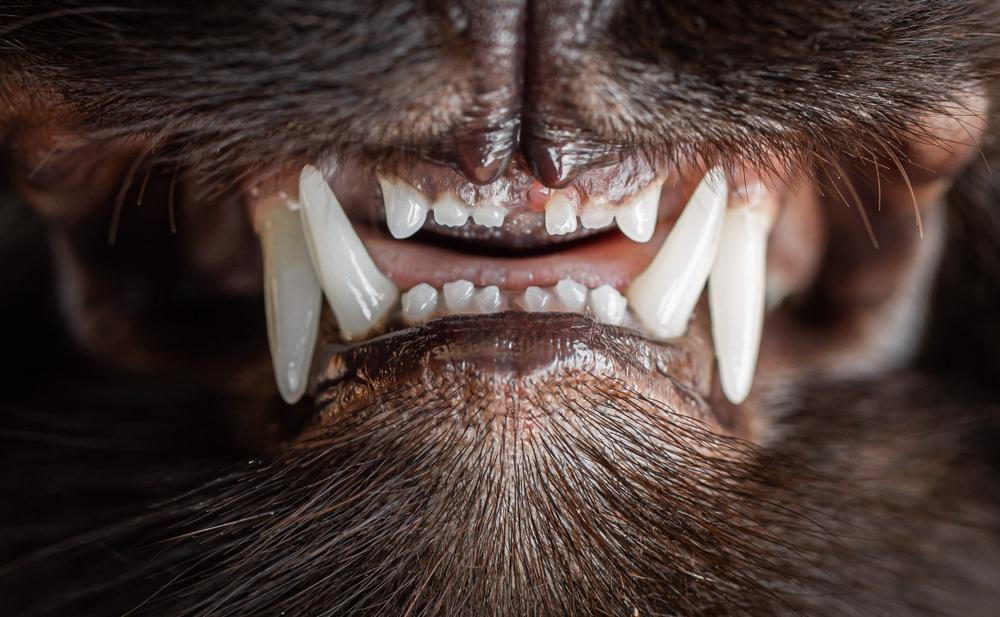Our Sarasota Animal Medical Center team prioritizes pets’ health and well-being, not only addressing immediate concerns but also preventing chronic issues such as periodontal disease, a common condition that affects roughly 80% of dogs and cats older than age 3. When you understand how periodontal disease affects your pet’s overall health, you can make informed decisions about your furry pal’s dental care. Learn about periodontal disease’s causes, consequences, and preventive measures.
What is periodontal disease in pets?
Periodontal disease occurs when plaque, a sticky film made of bacteria, food particles, and saliva, accumulates on your pet’s teeth. If left untreated, plaque hardens into tartar, a mineralized crust that adheres to the tooth surface. Tartar buildup creates a haven for harmful bacteria and can trigger gum inflammation and infection. As periodontal disease progresses, the bacteria go beyond the gums, damaging the ligaments and bone supporting the teeth. The damage can cause teeth to become loose and potentially fall out, and cause your pet pain.
How does periodontal disease develop in pets?
A pet’s oral health depends on several factors. Your pet may be prone to periodontal disease based on one or more of the following:
- Dental hygiene — Like people, pets need regular toothbrushing to remove plaque. If you do not regularly brush your furry pal’s teeth, plaque builds up and hardens into tartar, leading to periodontal disease.
- Breed — Certain breeds, such as brachycephalic breeds with short noses, are predisposed to dental problems because of their jaw anatomy and conformation. If you have a brachycephalic pet, strive to maintain their oral hygiene, as these breeds are prone to plaque buildup.
- Chewing habits — Appropriate dental chew toys help remove plaque and massage your pet’s gums, naturally promoting oral health. Encourage healthy chewing habits by providing safe and engaging chew toys specifically designed for your pet’s size and chewing preference.
Recognizing periodontal disease signs in dogs and cats
Early dental disease detection is crucial to manage your pet’s oral health. Keep an eye out for these red flags:
- Bad breath — Persistent halitosis, or bad breath, indicates your pet likely has dental issues. A healthy pet’s breath shouldn’t be offensive.
- Gingival changes: — Healthy gums should be pink and firm. Red, swollen, or bleeding gums signal inflammation and potential infection. If your pet has these signs, their oral health is likely poor.
- Loose or missing teeth — Advanced periodontal disease can cause your pet’s teeth to loosen and eventually fall out. If your pet has any loose teeth, schedule a visit with our Sarasota Animal Medical Center team.
- Eating difficulties — Pain or discomfort caused by inflammation or loose teeth can deter pets from eating normally. Be on the lookout for changes in your pet’s appetite and eating habits.
- Facial swelling — If your pet’s periodontal disease is severe, they may experience facial swelling because of widespread infection. This is a serious sign and requires immediate veterinary attention.
Long-term consequences of periodontal disease in pets
If your pet’s dental care is inadequate, your furry pal’s overall health can suffer. Poor dental hygiene can cause the following far-reaching consequences:
- Oral pain and discomfort — Dental pain significantly impacts a pet’s quality of life, affecting their appetite, playfulness, and overall well-being.
- Organ damage — Periodontal disease not only affects your pet’s mouth, the condition can affect their entire body. Oral bacteria can enter the bloodstream and travel to vital organs, such as the heart, liver, and kidneys, potentially leading to serious health complications.
- Weight loss — Painful teeth and difficulty eating can result in weight loss, further impacting your furry pal’s health. Monitor your pet’s weight and address any unexplained changes with your veterinarian.
- Diabetes complications — For diabetic pets, periodontal disease can worsen blood sugar control, making management more challenging. If your pet has diabetes, caring for their oral health is especially important.
Periodontal disease prevention in pets 
Consistent oral hygiene practices help your pet avoid periodontal disease. Strive to promote your pet’s dental health by doing the following:
- Daily toothbrushing — Make toothbrushing a regular part of your pet’s routine. Use a pet-specific toothbrush and toothpaste. Brush your furry pal’s teeth a minimum of three times per week.
- Dental chews — Choose appropriate dental chews that help remove plaque and tartar. Provide veterinary-approved chews designed for your pet’s size and chewing habits.
- Regular professional dental cleanings — Professional dental cleanings remove tartar buildup that is unreachable through home care and provide an opportunity for a thorough oral health assessment.
By ensuring your furry pal receives routine at-home and professional dental care, you promote their oral health and overall well-being. However, if your pet exhibits any periodontal disease signs, schedule an appointment with our Sarasota Animal Medical Center team.

